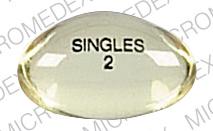Vitamin E
What is Vitamin E?
Vitamin E is a generic term for a group of tocol and tocotrienol derivatives. It is a fat-soluble vitamin that exists in a variety of forms in many foods (eg, spinach, nuts, sunflower seeds, olives, asparagus, vegetable oils, mangoes, wheat germ, whole-wheat breads). The most common form in a Western diet is alpha-tocopherol. The most important chemical characteristic is its antioxidant property, which in foods, blocks the addition of oxygen to fats, causing rancidity. In the body, antioxidants may prevent formation of reactive oxygen species, which can cause damage to proteins and DNA in tissues.
Scientific Name(s)
Alpha-tocopherol
Common Name(s)
Vitamin E
What is it used for?
Traditional/Ethnobotanical uses
Vitamin E was discovered in 1922 when reproductive abnormalities in rats reared on a basic diet were cured by a substance isolated from vegetable oils. A pure fraction was chemically identified in 1938 and named tocopherol after the Greek words tokos and phero meaning "child birth" and "to bring forth."
General uses
Routine use of high-dose vitamin E for cancer, cardiovascular disease, diabetes, and epilepsy is not recommended. Vitamin E supplementation may have a role in treating age-related macular degeneration, dysmenorrhea, preeclampsia, rheumatoid arthritis, and tardive dyskinesia. Topical use of vitamin E has been investigated for the reduction of scarring.
What is the recommended dosage?
Dosages in clinical trials range from 400 to 1,600 units/day. The established safe upper limit is 1,000 mg/day (1,500 units/day), but due to findings from meta-analyses, a lower safe dosage of 150 to 200 units/day has been suggested.
Contraindications
Contraindications have not yet been identified.
Pregnancy/Lactation
Trials have been conducted in pregnant women (see Uses and Pharmacology). The majority of trials report no increase in negative fetal outcome, but results regarding birth-weight are conflicting. Considering the evidence of harm (all-cause mortality), high-dose vitamin E supplementation should be used with caution. Natural food sources are preferred.
Interactions
Orlistat may reduce vitamin E absorption. Vitamin E may increase the anticoagulant effect of warfarin and may decrease the benefits of atorvastatin therapy.
Side Effects
Meta-analyses of trials investigating high-dose vitamin E supplementation have found evidence of harm. Low-dose vitamin E supplementation (150 mg/day) does not appear to have any serious adverse reactions. High doses of vitamin E may prolong bleeding time.
Related/similar drugs
Zithromax
Zithromax (azithromycin) treats infections caused by bacteria, such as respiratory infections, skin ...
Creon
Creon (pancrelipase) contains digestive enzymes and is used to improve food digestion in people who ...
Aricept
Aricept is used to treat mild to severe dementia caused by Alzheimer's disease. Learn about side ...
Gentamicin
Gentamicin systemic is used for bacteremia, bacterial endocarditis prevention, bacterial infection ...
Ascorbic acid
Ascorbic acid systemic is used for dietary supplementation, scurvy, urinary acidification
Acetylcysteine
Acetylcysteine systemic is used for acetaminophen overdose, diagnostic bronchograms, dietary ...
Memantine
Memantine (brand name Namenda) is an oral NMDA blocker that may be used to treat moderate to severe ...
Donepezil
Donepezil (brand name Aricept) may be used to treat dementia caused by Alzheimer's disease ...
Amantadine
Easy-to-read patient leaflet for amantadine. Includes indications, proper use, special ...
Toxicology
Vitamin E is a known antioxidant. However, it may also act as a pro-oxidant, causing oxidation and consequent damage to cells. The use of high-dose vitamin E supplementation may increase the risk of cancer in certain populations and also increase mortality.
References
Frequently asked questions
More about vitamin e
- Check interactions
- Compare alternatives
- Reviews (7)
- Side effects
- Dosage information
- During pregnancy
- Drug class: vitamins
- Breastfeeding
Patient resources
- Vitamin E drug information
- Vitamin E Capsules and Tablets
- Vitamin E Chewable Tablets
- Vitamin E Oral Drops
- Vitamin E Oral Liquid
- Vitamin E Oral or Topical Oil
Other brands
Alpha E, Aqua Gem-E, Aquasol E, E Pherol, ... +6 more
Professional resources
Related treatment guides
Further information
Always consult your healthcare provider to ensure the information displayed on this page applies to your personal circumstances.

